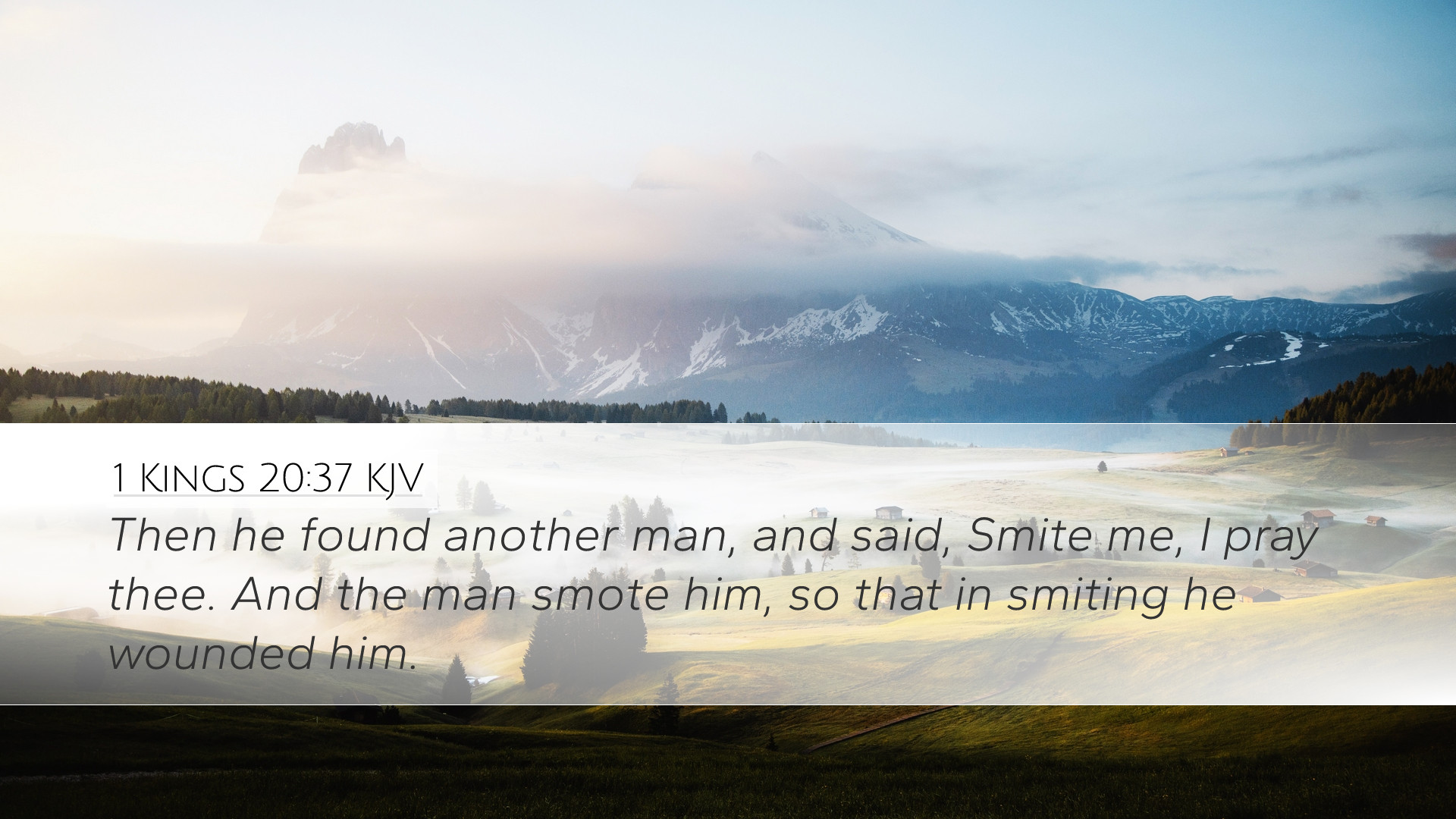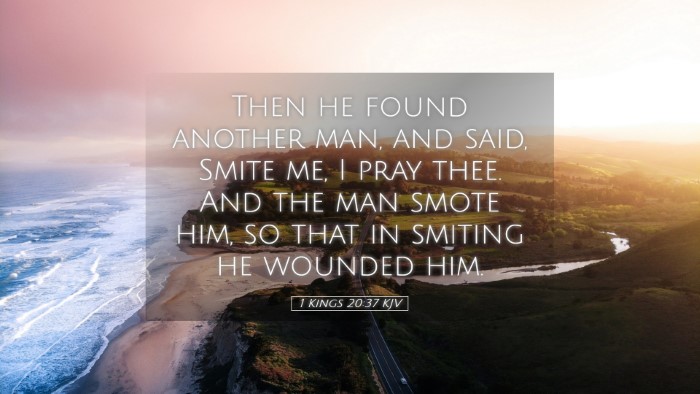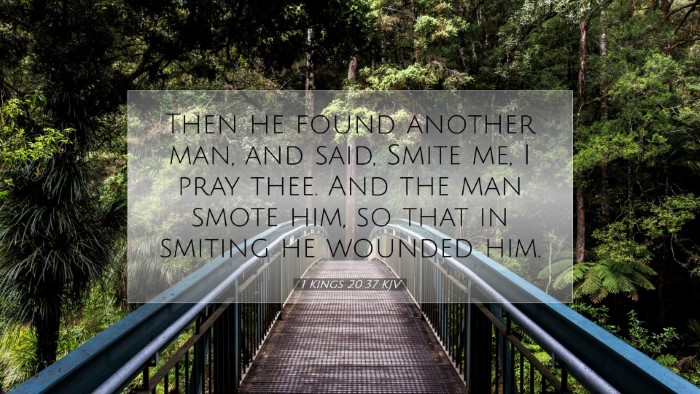Commentary on 1 Kings 20:37
Contextual Background
In 1 Kings 20, we see a narrative that depicts the conflict between Israel and Syria during the reign of King Ahab. This chapter reveals the intricacies of warfare and political machinations, emphasizing the prophetic voice within Israel that guides and warns the king.
Verse Analysis
1 Kings 20:37: “Then he found another man, and said, ‘Strike me, please.’ And the man struck him, inflicting a wound.”
The Role of the Prophet
The prophetic office plays a crucial role throughout the passage. As outlined by Albert Barnes, the prophet's disguise and subsequent commands reflect the supernatural guidance that informs the actions of God’s chosen amid external conflicts.
Symbolism of the Wound
The act of striking the prophet serves a dual purpose; it is a means of illustrating the seriousness of Israel's predicament—a nation caught in sin and in need of divine judgment. Adam Clarke notes that the physical wound symbolizes a deeper spiritual reality; it is a manifestation of the wounds Israel has endured due to its unfaithfulness to God.
Theological Implications
Within the broader theological context, this verse underscores themes of obedience and suffering. Matthew Henry explores the idea that suffering can lead to spiritual awakening and redemption, thus framing the inflicted wound as a necessary act for the prophet to convey the gravity of God’s message to Ahab.
Obedience to Divine Commands
The willingness of the prophet to be wounded at God's command indicates the level of sacrifice demanded by true obedience. This act not only serves to deliver God's message but also engages the prophet in the plight of Israel, a theme echoed in the sufferings of Christ.
The Call to Repentance
This narrative can be seen as a microcosm of God’s ongoing call for His people to return to Him, emphasizing that true leadership entails acknowledging one’s wounds. The prophet’s physical injury becomes a powerful metaphor for the collective sin of the nation.
Practical Application
For pastors and church leaders, this passage offers profound insights into the nature of leadership and the prophetic call. Leaders are encouraged to embrace sufferings for the sake of their communities while being true to the message of the Gospel.
Empathy in Leadership
As with the prophet who bore the wound, leaders today are tasked with understanding the struggles of those they lead—seeing beyond the surface pain to the deeper spiritual realities at play.
Revitalizing the Prophetic Voice
This verse challenges contemporary church leaders to revitalize their prophetic voice, to not shy away from delivering hard truths even if it comes with personal cost. It serves as a reminder that genuineness in ministry is often connected to our willingness to confront difficult realities.
Conclusion
The poignant interaction in 1 Kings 20:37 serves not only to deliver a prophetic message but also invites reflection on the complexities of obedience, suffering, and the divine call to engage deeply with the struggles of our communities. This understanding is vital for any pastor, scholar, or theologian striving to honor God’s voice amidst the tumult of human experience.


